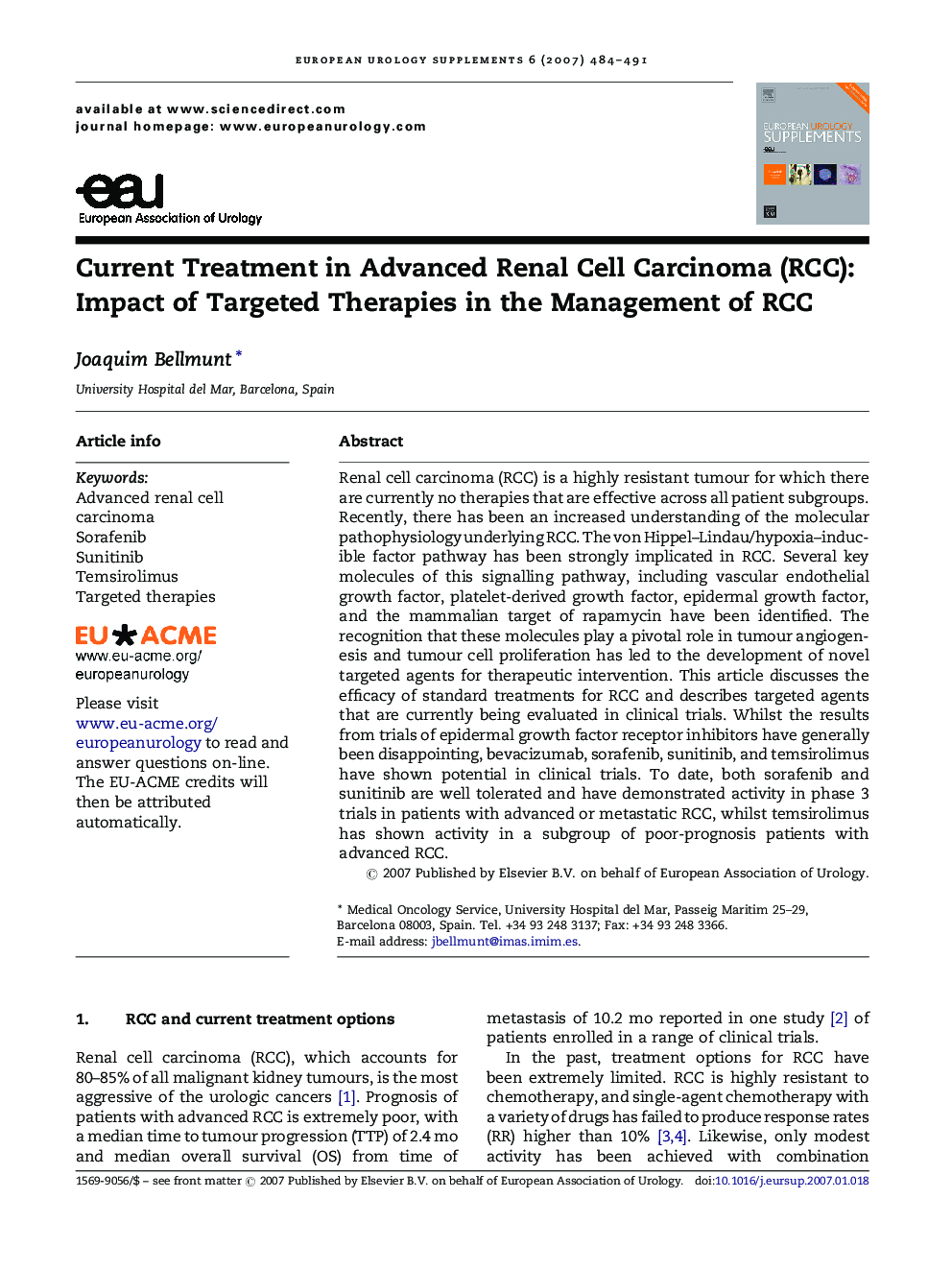| Article ID | Journal | Published Year | Pages | File Type |
|---|---|---|---|---|
| 3930707 | European Urology Supplements | 2007 | 8 Pages |
Renal cell carcinoma (RCC) is a highly resistant tumour for which there are currently no therapies that are effective across all patient subgroups. Recently, there has been an increased understanding of the molecular pathophysiology underlying RCC. The von Hippel–Lindau/hypoxia–inducible factor pathway has been strongly implicated in RCC. Several key molecules of this signalling pathway, including vascular endothelial growth factor, platelet-derived growth factor, epidermal growth factor, and the mammalian target of rapamycin have been identified. The recognition that these molecules play a pivotal role in tumour angiogenesis and tumour cell proliferation has led to the development of novel targeted agents for therapeutic intervention. This article discusses the efficacy of standard treatments for RCC and describes targeted agents that are currently being evaluated in clinical trials. Whilst the results from trials of epidermal growth factor receptor inhibitors have generally been disappointing, bevacizumab, sorafenib, sunitinib, and temsirolimus have shown potential in clinical trials. To date, both sorafenib and sunitinib are well tolerated and have demonstrated activity in phase 3 trials in patients with advanced or metastatic RCC, whilst temsirolimus has shown activity in a subgroup of poor-prognosis patients with advanced RCC.
